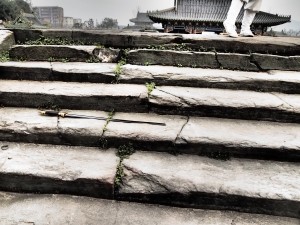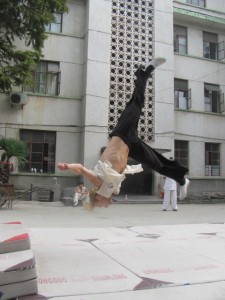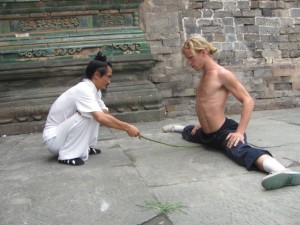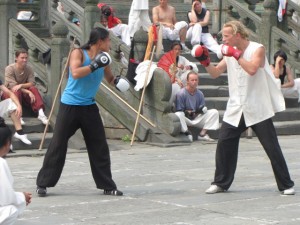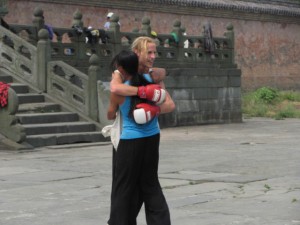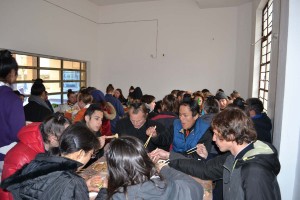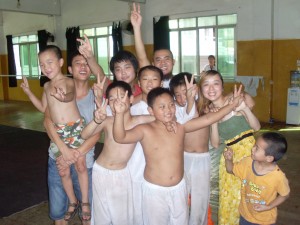In less than a week, I will be back in the U.S. which is excellent. My training is winding down for the year, and my classmates are all getting excited about what they are going to do for their holiday this year. For me, I am heading back to Maryland again to find some work and make some money so I can continue my training in 2013.
With the new year approaching, the time is right to try to glean some lesson from the year past and look to the future. Here’s what I’m thinking now.
I think everything — everything — we do is like pushing a rock up a hill, like the myth of Sisyphus who was punished by the gods to eternally push a great stone uphill but never reach the top. But unlike Sisyphus, our existence is not punishment, and there is respite and there is success. If we push forward hard enough for long enough, we can reach plateaus or even peaks — where we can rest, gain perspective, and enjoy the easy downhill. But if we don’t push hard enough or stop too soon, our rock rolls back to the beginning and we start again.
Here at the kungfu school, we see this a lot as the holiday approaches. Every day we struggle to put home and rest out of our minds and get to work. If we knuckle down and push with everything we have, really focus, the training becomes its own reward. But stay distracted, and the whole thing feels like a waste of time. What you get out of training is dependent on what you put in, but there is a threshold that must be passed with effort before the reward appears. Each day of training is a little hill, and if we want to reach the satisfying down-slope we have to wrestle ourselves to the top first.
It would be, of course, easier not to push at all, and there is a time and place for stillness. But if we live, we must move. Here at the kungfu school, we have our teachers and Shifu to keep us moving forward. Life outside the kungfu school has forces that goad all of us onward. But those forces can only keep us pressed to the stone; we ourselves have to take responsibility for moving it enough to succeed.
There is an element of faith in this. There is a enormous rock in front of you and you can’t see the top of the hill or what is ahead. You have to believe that success or respite will be the reward for your work, or you will never find the necessary fortitude to face the apparent futility.
Also, one can not tackle every hill. There are choices to be made. We must decide which rocks to push up which hills. But since life will not let us stop pushing altogether, we are best served by picking one rock and one hill at a time and pushing until the reward appears. Trying to juggle too many rocks, or shoving at one rock but never sustaining enough to earn satisfaction, we become mired in futility and frustration.
In my mind, Sisyphus’s task was no more than any of us face. His curse was to each time succumb to despair, to forever lack the faith and the will to persevere to an invisible goal. But the future is unknown, so all our goals are invisible. I think that in truth, the hills we climb are never as big as we imagine, and the greatest part of our time working and living is spent trying to find in ourselves the determination to push through to the end. We all have to struggle on the slope, but we don’t all have to get stuck there.
I hate it when my blogs get preachy like this, but I write for myself as much as anyone, and sometimes I need to hear this stuff 🙂

